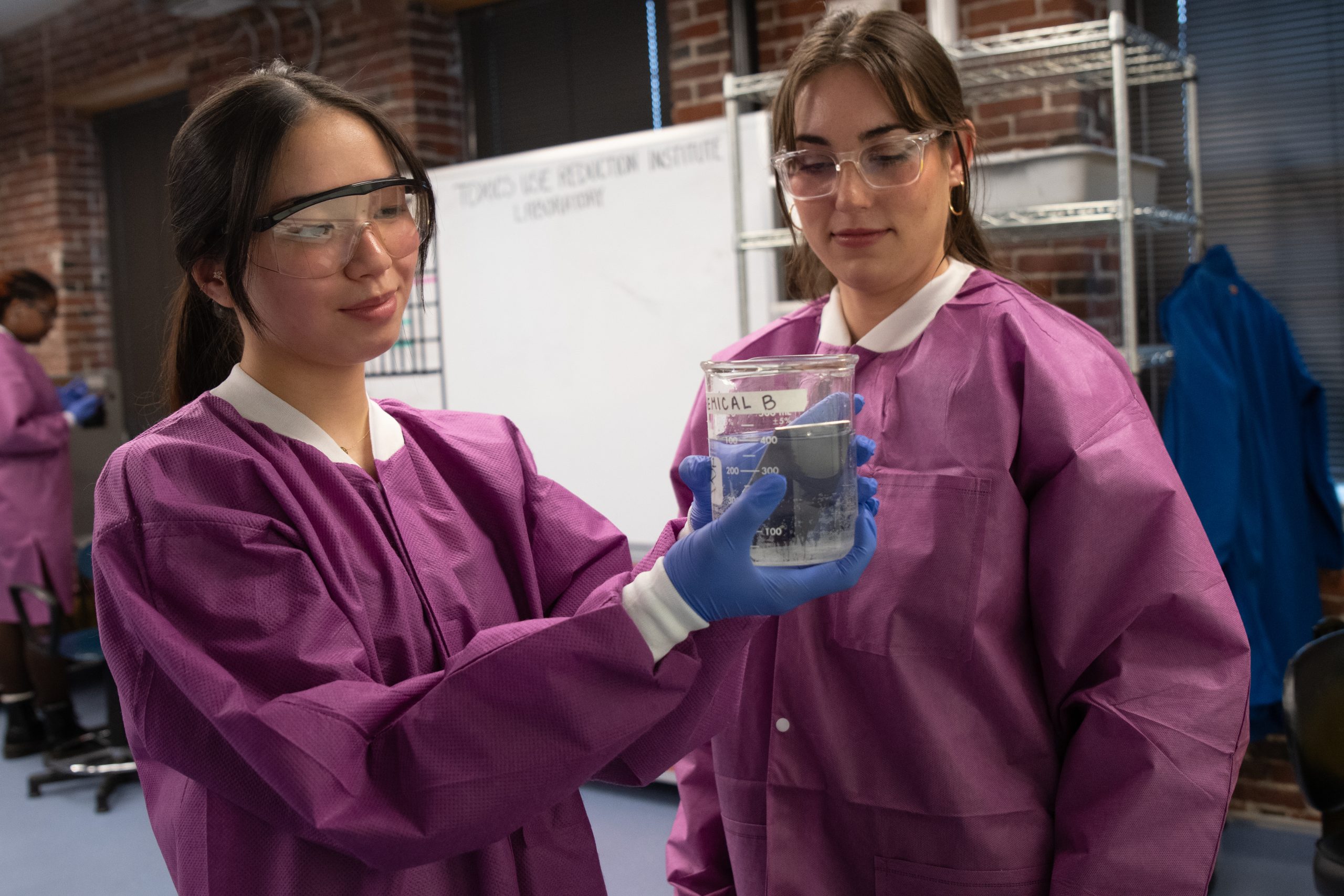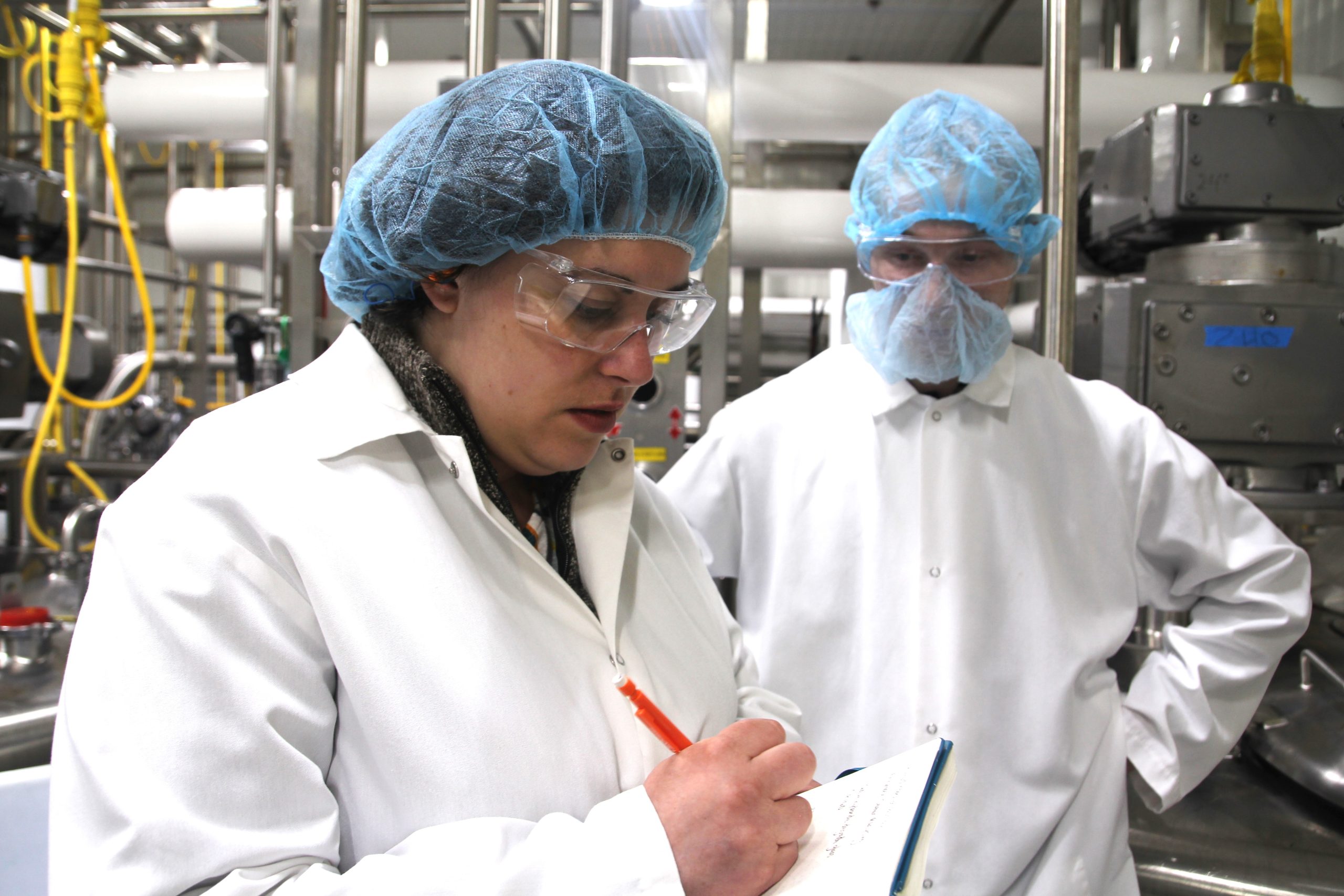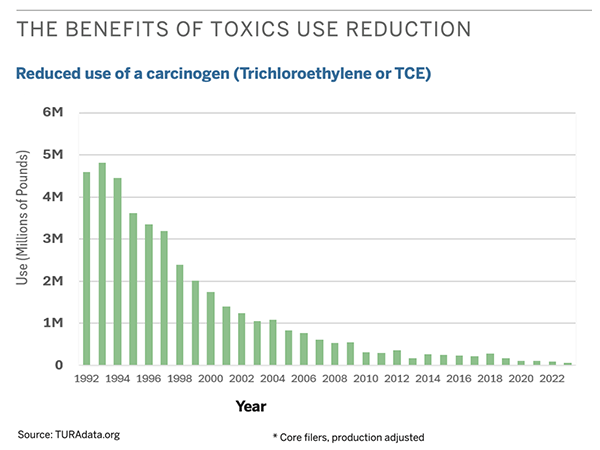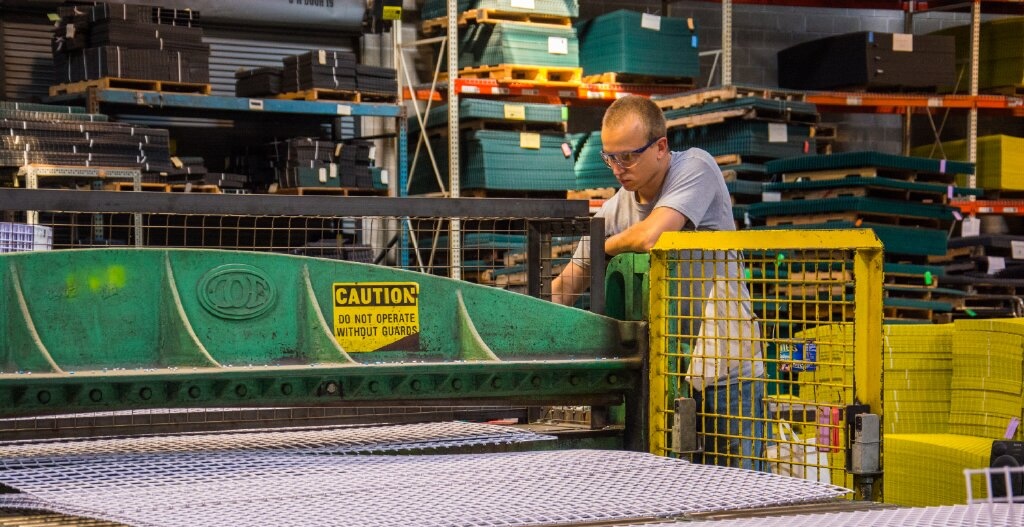

Building a future free of toxic chemicals.
TURI has helped businesses adopt safer chemicals and prevent pollution for more than 30 years.
Established by the Commonwealth of Massachusetts in 1989, the Toxics Use Reduction Institute (TURI) is an independent government agency with a mandate to help protect workers, communities and the environment from toxic chemicals and pollution. Working in close collaboration with businesses of all sizes, as well as government agencies, local communities and international organizations, TURI helps identify actions companies and communities can take to protect workers and public health.
Our “Drive to Zero”
TURI’s “Drive to Zero” is a concerted effort to help current users of halogenated chemicals get ahead of upcoming bans and restrictions. We help businesses eliminate their use of these toxic substances by facilitating the adoption of safer alternatives.
Alternatives to PFAS
“Forever” chemicals are seemingly everywhere. The science is clear on their adverse impacts and regulators are restricting their use. TURI is working to develop safer alternatives to the use of PFAS.
The Toxic Divide
Toxics Use Reduction is a best practice to protect workers, children, minorities, and other groups at greatest risk from the use of toxics in their communities. Our analyses inform targeted interventions to reduce exposure among underserved communities.
What we do
From technical assistance and grants, to policy analysis and trainings, TURI takes a multifaceted approach to help businesses and communities reduce the presence of toxics at home, at work and in our environment.
-

Training & Education
We train and equip experts in substitution to work with businesses across a range of industries.
-

Finding Solutions
We help identify, invent, and test alternatives to some of the most challenging uses of toxic chemicals today.
-

Turning Science to Policy
We work with a range of scientists and stakeholders to conduct robust policy analyses and alternatives assessments.
-

Providing Grants
We support businesses and communities to help overcome obstacles to the adoption of safer alternatives with financial assistance.
Our team includes scientists, engineers and policy experts, who have helped companies and communities successfully reduce the use and emission of toxic chemicals for over 30 years.
Learn More
Our Approach
Toxics Use Reduction focuses on minimizing risks to workers, families and communities by avoiding the use of hazardous substances at the source. First developed in Massachusetts, Toxics Use Reduction has served as a gold standard for efforts to prevent pollution and protect workers.
Our team of experts is dedicated to offering tailored solutions that address the specific needs of companies. We collaborate closely with businesses throughout their transformative journey, guiding them towards the adoption of safer alternatives.
About TURI

A track-record of success
Reducing Toxics Everywhere

Healthy Schools
Schools can make improvements throughout their buildings and school grounds to protect the health of children and teachers. Reduce the use of toxics by using safer cleaners and disinfectants, organic grass maintenance to eliminate the need for pesticides and more.






